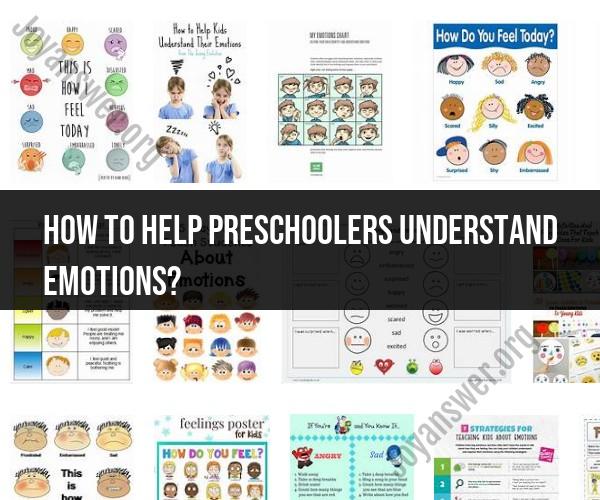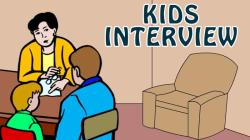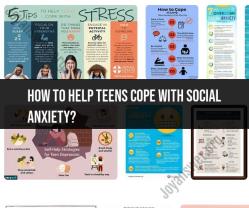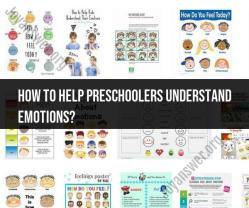How to help preschoolers understand emotions?
Helping preschoolers understand and manage their emotions is an essential aspect of their social and emotional development. Here are some tips and activities to assist preschoolers in understanding emotions:
1. Labeling Emotions:
- Start by teaching preschoolers the names of basic emotions, such as happy, sad, angry, and scared. Use picture books, flashcards, or simple drawings to illustrate each emotion.
2. Use Facial Expressions:
- Show them pictures or use a mirror to help them recognize facial expressions associated with different emotions. Encourage them to imitate these expressions.
3. Storytelling and Role-Playing:
- Read age-appropriate books or tell stories that feature characters experiencing various emotions. Afterward, engage in role-playing activities where they act out how characters might feel in different situations.
4. Emotion Cards:
- Create emotion cards with pictures of faces displaying different emotions. Shuffle the cards and ask preschoolers to pick one, then discuss how they would feel in that situation.
5. Emotion Charades:
- Play a game of charades where children act out different emotions without using words. Others guess what emotion they're portraying.
6. Emotion Recognition:
- Use real-life situations or images to ask preschoolers how they think someone might be feeling. For example, ask, "How do you think your friend feels when they get a new toy?"
7. Emotion Journals:
- Start an emotion journal where children can draw or write about how they felt during specific events or activities. Encourage them to use simple words or drawings to express their emotions.
8. Calm-Down Techniques:
- Teach preschoolers age-appropriate calming techniques, such as taking deep breaths, counting to ten, or using a "calm down" jar filled with glitter to watch as it settles.
9. Empathy Activities:
- Promote empathy by discussing how others might feel in different situations. Ask questions like, "How would you feel if you lost your favorite toy?" Encourage them to think about the feelings of others.
10. Emotional Storytelling:- Encourage children to tell their own stories or draw pictures about a time when they felt a specific emotion. This helps them express and reflect on their experiences.
11. Model Emotional Expression:- As adults, model healthy emotional expression by sharing your feelings and discussing how you manage them. Children often learn by observing.
12. Encourage Communication:- Create an environment where preschoolers feel comfortable discussing their feelings. Let them know that it's okay to express their emotions and that you're there to listen and support them.
13. Practice Patience:- Remember that understanding and managing emotions is a process. Be patient and understanding when preschoolers struggle with big feelings.
14. Use Emotional Books and Videos:- Select age-appropriate books and videos that focus on emotions. After reading a book or watching a video, discuss the characters' feelings and relate them to real-life situations.
15. Positive Reinforcement:- Praise and reinforce positive emotional expression and coping strategies. Celebrate their efforts to communicate and manage their feelings effectively.
By incorporating these tips and activities into daily routines, caregivers and educators can help preschoolers develop emotional awareness and regulation skills that will serve them well throughout their lives.













